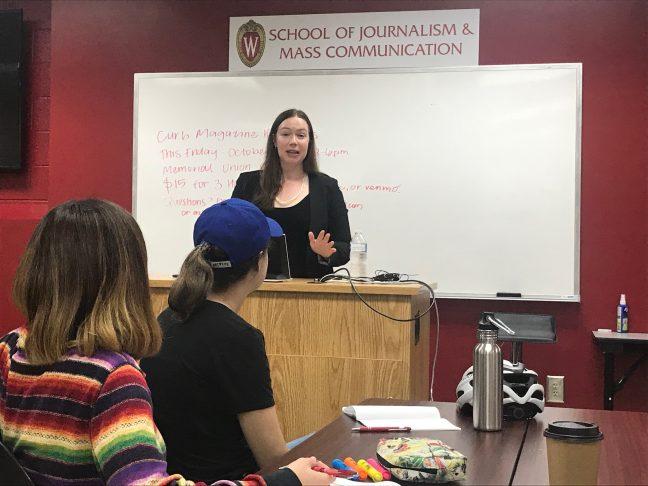FiveThirtyEight writer Clare Malone discussed the electability of the 2020 presidential candidates Tuesday.
Democratic voters want a candidate who can beat President Donald Trump in the upcoming election, not necessarily a candidate who aligns with their views, Malone said. This contradicts previous election years where polls reflected voters’ desire for a candidate whose views aligned with their own.
During the 2016 election, a number of voters switched parties from liberal to conservative, Malone said. Malone called them Obama-Trump voters. Demographic shifts in voter partisanship may have already been in the works, but the 2016 election accelerated it.
Presidential candidate Joe Biden has the advantage of name recognition, Malone said. Biden is viewed as a “safe figure” because he is familiar and not as unpredictable as Trump.
The element of celebrity can help candidates, Malone said. Biden’s support among black voters remains strong even though he has said some racially insensitive things in the past. Many black voters who favored Obama invested trust in Biden.
“Black voters are pessimistic that voters would vote for a non-traditional candidate, such as a woman or person of color,” Malone said.
Malone said women and people of color are less likely to win an election than a white male. When women or people of color run for office, those in power feel nervous to endorse them, so men are recruited more often than women. Malone said half of democratic voters said a woman would have a harder time beating Trump than a man.
Polls from last year show presidential candidate Elizabeth Warren tied with Biden among female voters, but trailed behind with male voters, Malone said.
“Democratic voters have huge doubts about Warren,” Malone said.
The Atlantic writer Peter Beinart wrote in an article that Warren attracts disproportionate conservative criticism because she is a woman rather than because of her progressive economic views.
A study from the Yale School of Management found female politicians who are perceived as having strong ambition, or a power-hungry attitude are less likely to be voted for compared to a similar male candidate.
Malone said conventional electability arguments play toward societal biases, and women and people of color aren’t likely to win an election because of our inherent biases. In this sense, electability is a self-fulfilling prophecy because we concede to norms even if we’re not comfortable with them, Malone said.
Malone said being a white man doesn’t mean inherently greater qualification to be president, but members of the public have been trained to think this way.
Malone said we should have greater precision in the way we talk about candidates, especially the hurdles candidates who are women or people of color face.
“Talking about racism and sexism in America doesn’t make you a stooge for one party, it makes you a person who is telling the truth about the forces that shape are country, our world view and our politics,” Malone said.


